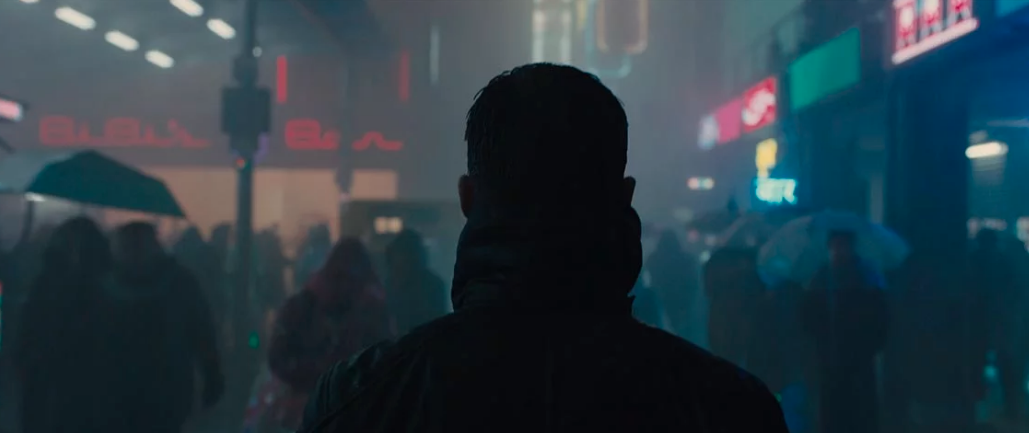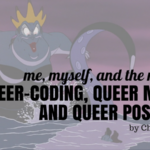
I’ve seen things you people wouldn’t believe, and this seems to be true. With the release of Blade Runner 2049, we get a sequel, which I would never believe, to be pure, epic, achingly beautiful and poses new questions to be sought post-screening. This is not just a film. This is a masterpiece. A piece of cinema. A ready-made classic to be poured over and dissected for years to come. Of course, we owe a lot to the preceding Blade Runner, and it’s genre-defining moment, yet there’s no denying that this is a paradigm moment for cinema, sci-fi, and the way we consider ourselves at the beginning of the 21st century.
K is a replicant, alone, isolated, overworked, emotionally strained and becomes more and more disillusioned every day. Not a far cry from my own feelings (although I’m not a replicant, or am I?), but this strikes a meaningful parallel between our society now and the future originally dreamt by Phillip K Dick, Scott and now Villeneuve.
Our world is in a constant realignment of narratives. Lies and hate are openly stated. Impending doom is on the horizon through greed or global warming, whilst we look up from dirty avenues and crowded urban spaces. The pervasion of media is probably not so omnipresent in BR as it is in our world. Capitalism hasn’t eaten Atari or Pan-Am, while Coca-Cola, Peugeot, and Sony sell visions of glamour and offer selective cultural artifacts like ‘ol blue eyes himself. Yet, the Wallace Corporation can solve our problems through off-world habitation and living, artificial farming, hologram partners and Replicants for a new slave army. A solution for all.

We live in an age which is so advanced culturally, technologically and economically advanced yet so backwards in terms of societal norms, political turmoil, and capitalist reprimands. It’s no wonder that K, a product of BR’s universe, who exists as a walking, talking, eating and bleeding personification of man’s advancement mirrors our world today. A victim of racial abuse (Skinjob), over-worked, meant to behave and act a certain way and poor living conditions. It’s no wonder that K gets quite pissed off. Yet, he discovers a miracle. He senses something awry and falls into disillusion with his purpose.
These plot devices aside, isn’t that what’s happening now? It’s definitely happening to me. I am in the world I exist within, it doesn’t work, and it presents issues that determine how we perceive ourselves and our future. Humans are different to K. They live, they procreate, they might get that ‘dream’ and then they die. K cannot justify his life and purpose by such a miracle. His own miracle is in his isolated existence; not yet retired. When he discovers he may have ascended to a human, he questions everything. He could have been something more in that society.
The isolation and what it means to be human is perfectly tied up within K’s own inner turmoil. He scours the world hovering above the wreckage, battlements, rubbish, and pollution. The cities he visits have different weather systems. All emblematic of his own emotional responses. His apartment, surrounded by danger and abuse, is his castle, and virtual joy is given through Joi’s own AI (Ana de Armas brings warmth and life to such a cold concept). His existence isn’t tested or interrogated here. He can become human by surrounding himself in booze, food, cigarettes and curated culture. His world, however, tests him as a replicant, the one he’s meant to serve. His identity is at risk, in fact, it’s redundant. He only has a serial number.
The incommensurability between replicants – society – world – corporations and his own role as a blade runner only seeks to keep K’s question of who and what am I, is only given the validation through Deckard’s future and thanks. K’s end also proves his life has been worthwhile. We can draw lines to our own world, where someone else’s validation measures validation of our own existence. Our struggle to occupy the world where obstacles restrict our freedom exist as they do for K. Albeit with less drama or consequence for society’s future.
Where the original was lauded for its future cityscapes and technology and spawned sub-cultures of its own, 2049 expands upon this world and demonstrates the menace future cities could hold for our world. As we migrate more and more to urban environments, the technological need will dictate how we live. Class divides have the potential to present 2049’s universe, where the wealthy live in opulent tombs where shadows are articulated by natural daylight. Of course, we don’t know what’s off-world, but what’s left is slim pickings, almost akin to squalor.
 Villeneuve’s universe, expertly articulated by cinematographer Roger Deakins, fills your gaze with aesthetic layers that flux between rich and dense to sparse and decrypt with aplomb. Multiple viewings only seek to highlight the depths within the world of 2049. How the light moves, how the holocaust sky seems at once dangerous and beautiful, and the fragrances of neon that embellish the urban environment, giving a vibrancy and life to what would be considered treacherous living. Scaled projections interact with inhabitants, offering winks, kisses, and waves; the universe is alive, albeit artificial.
Villeneuve’s universe, expertly articulated by cinematographer Roger Deakins, fills your gaze with aesthetic layers that flux between rich and dense to sparse and decrypt with aplomb. Multiple viewings only seek to highlight the depths within the world of 2049. How the light moves, how the holocaust sky seems at once dangerous and beautiful, and the fragrances of neon that embellish the urban environment, giving a vibrancy and life to what would be considered treacherous living. Scaled projections interact with inhabitants, offering winks, kisses, and waves; the universe is alive, albeit artificial.
The visual juxtaposes deliciously with Zimmer and Wallfisch’s score, reminiscent of Vangelis, but still its own, paced to perfection with the dialogue, action and contemplative vistas. Dabbles of contemporaneity exist through Elvis and Sinatra, but the score projects 2049 forward, embracing its context and becoming a facet of the world you could imagine it sounding. Neon synths and chopped reverbs. Again, the layering upon the aesthetic only makes this more of a visual and auditory feast.
I wrote this as a love letter of sorts to the film. I’ve seen it three times and can’t wait to watch it again. Any apprehension about it being a sequel, so far apart, will it hold up, etc. is irrelevant. This is both a great sequel and standalone title. It’s a marquee moment for cinema in the fact it doesn’t follow traditional and contemporary formulaic filmmaking. Its atmosphere is something to marvel at and become consumed by. The film moves at a pace that isn’t rushed or diminishes roles. It asks poignant questions about humanity, our environment, and future. Its plot isn’t far-fetched (considering the universe it exists within) and still leaves you wanting. 2049 is both cinema and existential contemplation. It asks the viewer to go along with it, but also asks you stop and take stock of what’s what.



